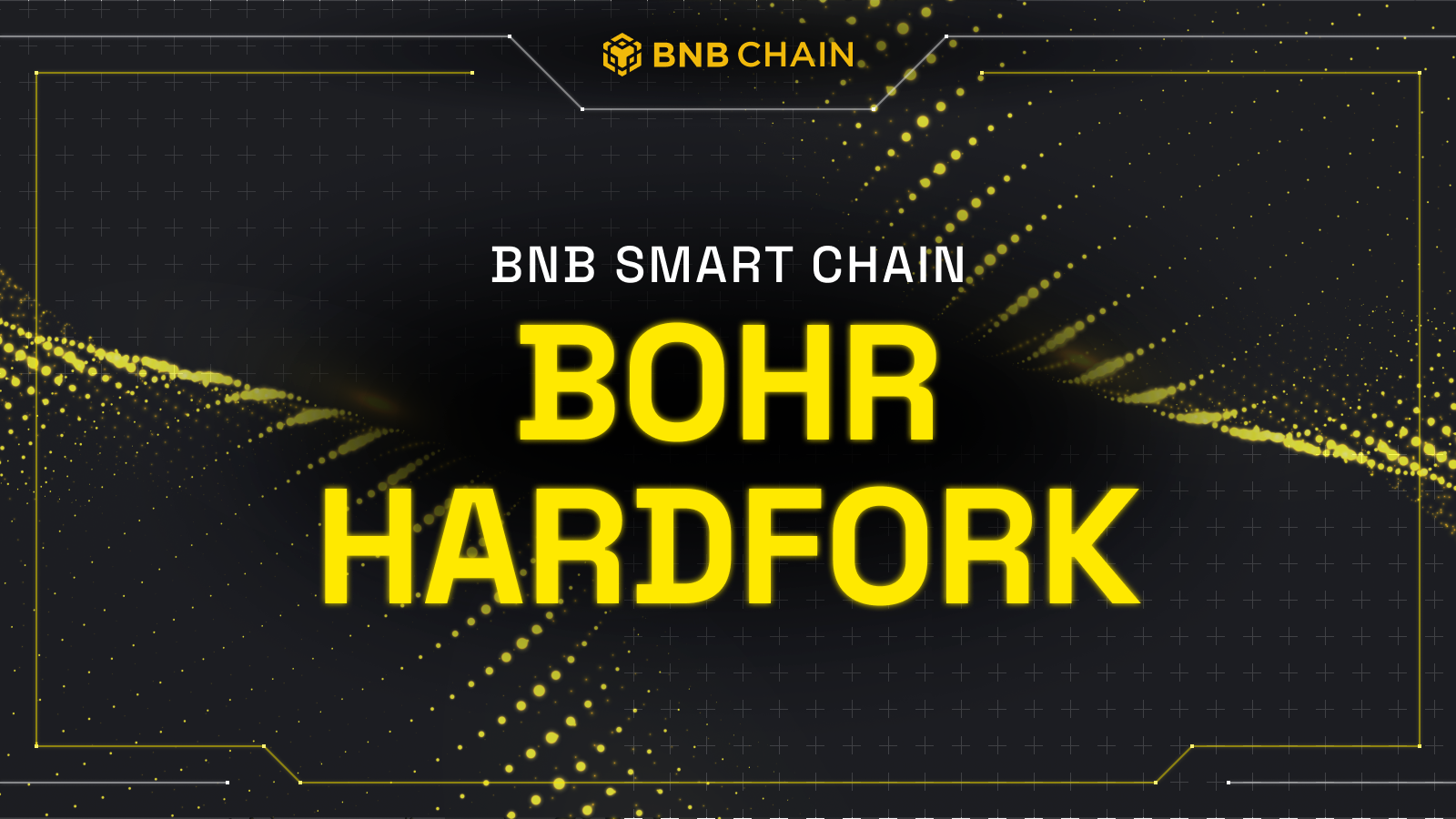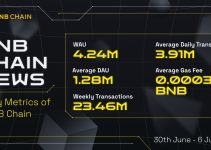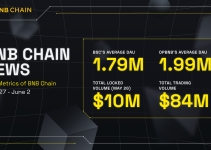Table of Contents

BNB Chain has successfully activated the Bohr hard fork on the BSC testnet. The Bohr upgrade on the BSC mainnet is scheduled for September 26, although this could be subject to changes. The hard fork was deployed on the BSC testnet on 2024-08-20 at 01:23:16 AM UTC.
Bohr Hard Fork Details
The Bohr hard fork contains four BEPs (Binance Chain Evolution Proposal).
- BEP 341 – BEP 341 will enable validators to produce consecutive blocks.
- BEP 402 – Enables the completion of missing fields in the block header to generate signatures.
- BEP 404 – Clears miner history when switching validators set
- BEP 410 – Adds an agent for validators
The most critical aspect of the Bohr hard fork is BEP 341, which will allow validators to produce consecutive blocks.
A Closer Look At BEP 341
BEP 341 utilizes a tried-and-tested approach that allows validators to produce consecutive blocks, a marked shift from the current single-slot system. By allowing validators to produce consecutive blocks, BSC can enhance its block production capacity and address the growing demands of the overall ecosystem.
BEP 341 has two crucial elements:
- Number of consecutive blocks (n) – As the name suggests, this parameter defines the number of successive blocks a validator can produce within a single epoch.
- AntiMEV Ratio – The antiMEV Ratio helps counteract potential MEV abuse by adjusting the transaction fee split to the SystemRewardContract. When a validator’s consecutive block priority increases, the transaction fee split to the SystemRewardContract also registers a linear increase and is capped by the systemRewardAntiMEVRatio. This is initially set to zero, and any changes require governance approval.
Governance Process for Adjusting Consecutive Block Production in BEP 341
While the Bohr hard fork includes BEP 341, it is important to note that the initial implementation of this feature does not immediately alter the current setting of consecutive block production.
To adjust the number of consecutive blocks, an on-chain governance process will take place after the Bohr hard fork, estimated for October 2024. BNB holders and stakers will participate in this vote to decide on the change. The hard fork makes this setting governable, and the community will determine if the adjustment should be implemented.
Benefits Of BEP 341
Implementing BEP 341 with the Bohr hard fork has several benefits, including increased efficiency, greater decentralization, and fair revenue distribution.
- Improved Efficiency – By enabling the production of consecutive blocks, BEP 341 could help BSC improve block production efficiency, enhance throughput, and meet the growing demands of its ecosystem.
- Fair Revenue Distribution – BEP 341 ensures validator and delegator revenue is evenly distributed as block production efficiency improves. Using an AntiMEV mechanism ensures high-performance validators cannot gain an undue advantage, promoting fairness on the network.
In Closing
The Bohr hard fork is a crucial upgrade for BNB Chain, improving efficiency by allowing validators to produce consecutive blocks. This change meets growing ecosystem demands while maintaining fairness through measures like the AntiMEV Ratio. As it approaches deployment on the mainnet, Bohr is set to enhance the chain’s scalability and security, ensuring it remains robust and decentralized.


